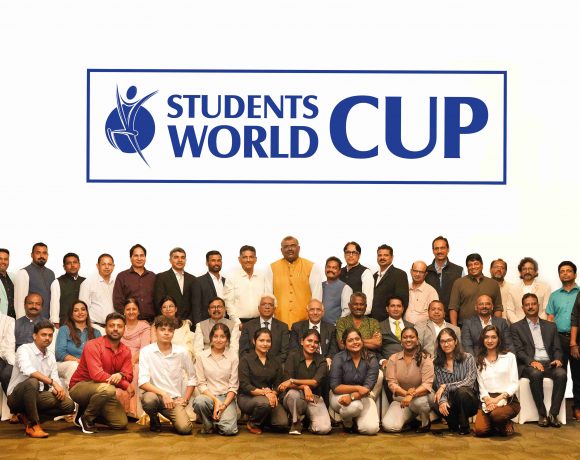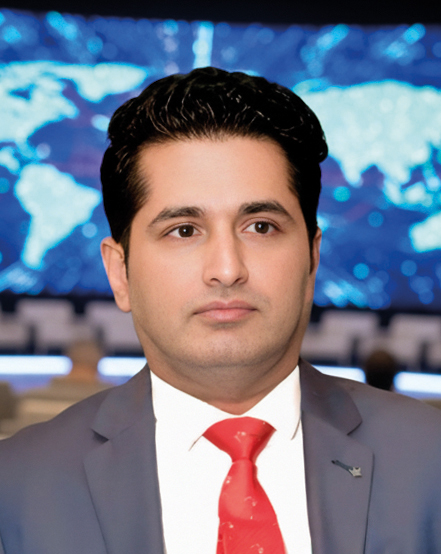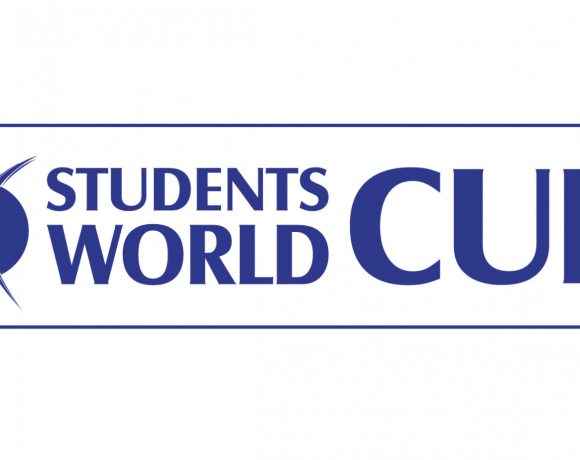
The Students World Cup (SWCC) proudly celebrated its international launch on 12th July 2025 in New Delhi, bringing together distinguished guests and dignitaries from around the world.
The event was honored by Chief Guest Hon’ble Justice Dinesh Maheshwari, Chairperson of the 23rd Law Commission of India and Former Judge of the Supreme Court, and Chief Guest Prof. Luis G. Franceschi, Assistant Secretary-General of the Commonwealth of Nations. His Excellency Dr. Mohammad Ahmed Bin Fahad, Chairman, Patron & President of SWCC for GCC Countries, Africa, and Europe, graced the occasion as Guest of Honour, while Special Guest Dr. Abdulla Rafiu, Minister of Sports, Fitness and Recreation, Maldives, added further international prominence to the launch.
The ceremony brought together a stellar assembly of Padma Award, Arjuna Award, and Dhyan Chand Award recipients, Olympians, national and international sports icons, eminent legal experts, business leaders, financial experts, and representatives from leading educational institutions. Their presence highlighted the global vision of SWCC—to unite, inspire, and empower students through the transformative power of sports.
The Delhi launch not only marked a historic beginning but also set the stage for SWCC to become the world’s largest student-focused sporting platform, connecting young athletes and fostering excellence across disciplines.
Chief Guest – Justice Dinesh Maheshwari
(Chairman of the Law Commission of India, Former Judge of the Supreme Court of India, Former Chief Justice of the Karnataka and Meghalaya High Courts, and Former Chief Patron of SWCC)
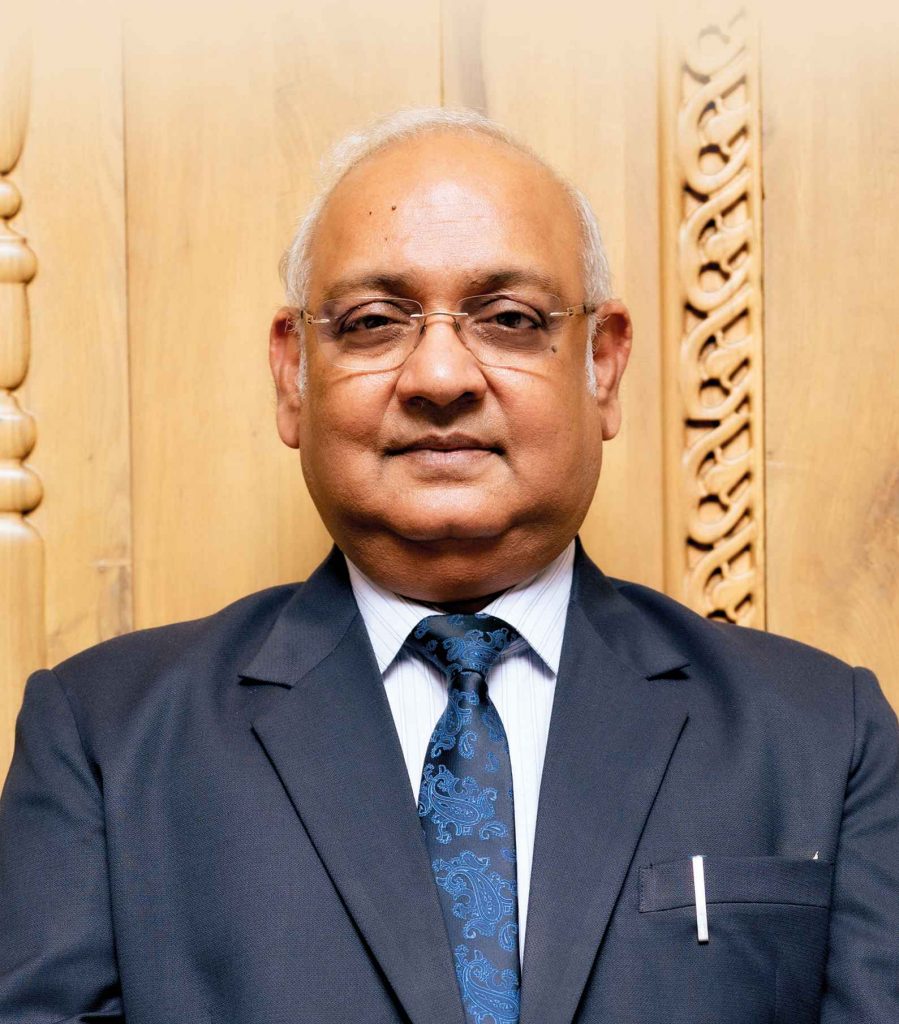
Hon’ble Justice Dinesh Maheshwari, in his address, spoke with warmth and pride about his association with SWCC. He shared how gratifying it has been to witness the organisation grow from a mere idea into a living reality, shaped by years of dedication and teamwork. Having been closely connected for over a year, he recalled the memorable second launch on 10th April and the bittersweet moment when he was invited to join the Law Commission of India—an honour that required him to step down from his role as Chief Patron of SWCC.
With a personal touch, he spoke about his own fond memories of playing cricket during his legal career, particularly the lawyers’ cricket matches that he thoroughly enjoyed and often excelled in. Drawing from these experiences, he reflected on the true essence of sport—its power to keep winners grounded, to help us accept defeat with dignity, and to inspire resilience in others. He cited the humility of champions like Mary Kom and the grace shown by Magnus Carlsen in defeat, as examples of the priceless values sports bring into our lives.
Justice Maheshwari emphasized that the time has come for India to view sports not just as a competition, but as a force that shapes character, builds communities, and opens new opportunities. He lauded the recently announced National Sports Policy as a bold and refreshing framework that goes beyond previous models, focusing on grassroots development, nurturing initiatives like Khelo India, and creating career pathways not only for athletes but also for countless professionals in related fields.
Commending SWCC as a model of private initiative and international cooperation, he praised the energy of the youth driving it forward. He observed that the growing involvement of private entities in sports is a welcome trend, one that can cultivate champions across disciplines and enhance India’s presence on the world stage.
Chief Guest, Prof. Luis G. Franceschi, Asst. Secretary-General of Commonwealth of Nations, Patron of SWCC for Commonwealth of Nations
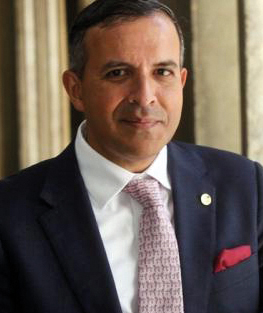
Prof. Luis G. Franceschi began with warm greetings and appreciation for the efficiency of Delhi Airport. Hon Shirley Ayorkor Botchwey, Secretary-General of the Commonwealth, conveyed her greetings and acknowledged the presence of distinguished guests and luminaries. She spoke of unity, brotherhood, and the belief that no human is limited, drawing inspiration from India’s sporting spirit—citing Chak De! India, Bagh Milkha Bagh, Mary Kom, Neeraj Chopra, Gukesh, Virat Kohli, and Anju Bobby George. She highlighted the Commonwealth’s commitment to development and peace, describing sports as a language that unites cultures and nations, fosters friendship, and drives sustainable development across 56 member states. Encouraging the youth to celebrate even small wins, she affirmed that the Commonwealth is “all of us together,” not just a single nation.
Guest of Honour- His excellency Dr Mohammad Ahmed Bin Fahad, Patron of SWCC for GCC, Europe & African Nations
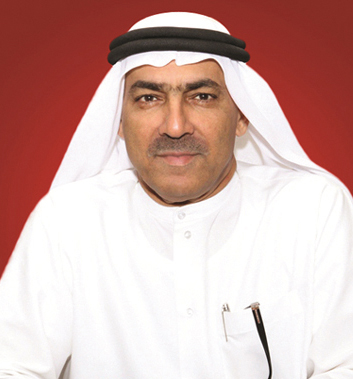
His Excellency Dr Mohammad Ahmed Bin Fahad delivered an energetic and engaging address, beginning with heartfelt thanks to Mr. Rajeev Kumar for the invitation and warmly greeting the dignitaries. He fondly mentioned his close associate, Mr. V.S.N. Anilkumar, referring to him as a brother. In a light-hearted moment, he remarked that all the previous speakers had already covered most points, bringing joy and laughter to the gathering.
He shared that, despite coming from a different heritage and place, he felt truly at home among the Indian community. Emphasising the role of the Students World Cup, he said it must bring ideal personalities into society, fostering peace, and serve as an umbrella for all youth, ensuring benefits for everyone and not just a few. He praised it as one of the greatest sporting ideas of the 21st century and urged that humanity remain at the heart of all such initiatives.
Recalling an inspiring example of a visually impaired individual excelling through sports and now serving in Dubai Police, he highlighted sports as a unifying and empowering force. He concluded by saying that wise leadership can steer the ship of sports globally without the constraints of money, as sports is the one arena where all human beings are truly equal.
Dr. Abdulla Rafiu, Minister of Sports Fitness, and Recreation in Maldives
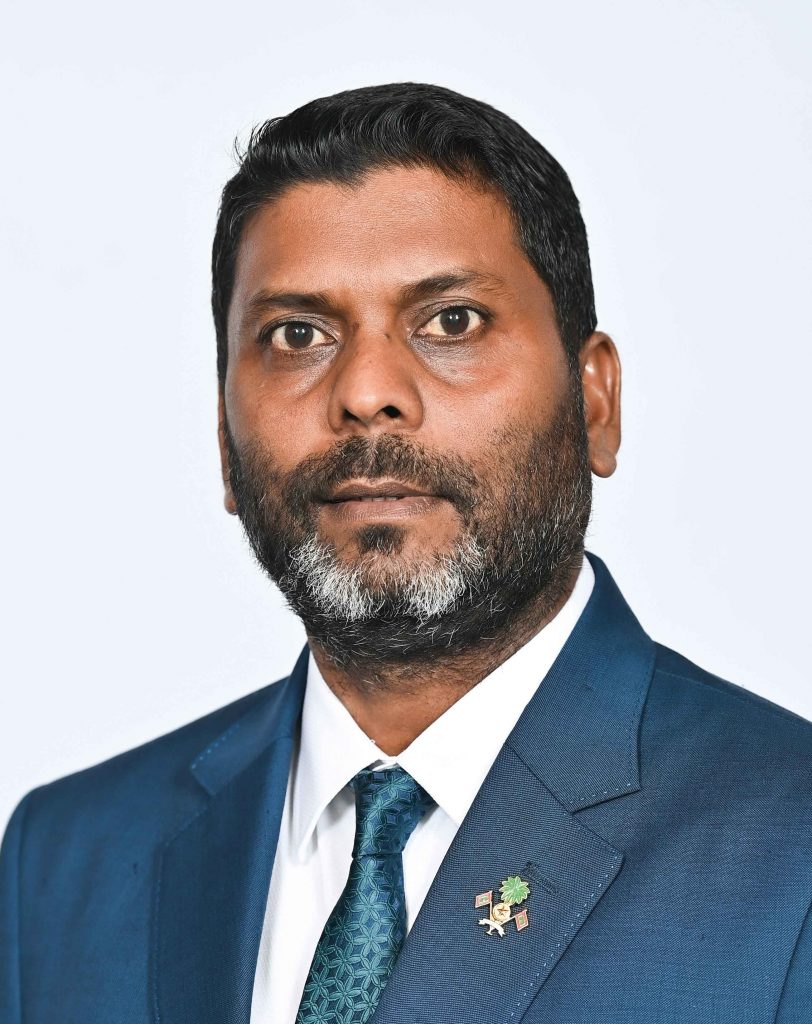
Dr. Abdulla Rafiu opened with warm greetings—“Good afternoon and As-salamu Alaikum”—calling it a proud moment for the world of sports. He expressed joy in joining the event and appreciated the ambition and vision of the movement, noting it was an honour to stand alongside Padma awardees, Olympians, and eminent sportspersons. He thanked Mr. Luis and Mr. Ahmed from the GCC and expressed confidence that this initiative will create a meaningful impact beyond borders.
Highlighting sports as a powerful medium of unity, peace, and nation-building, he shared Maldives’ commitment to transforming school sports through the newly refined Sports Bill and the President’s “Maldives Fitness Test” program for school children. He described today as a historic moment, with a powerful movement emerging from India, and expressed belief that the Students World Cup will help make India a global capital of sports. He concluded by thanking Rajeev Kumar for including him in this assembly and assured is full personal and official support.
Aruneshwar Gupta, President of SWCC
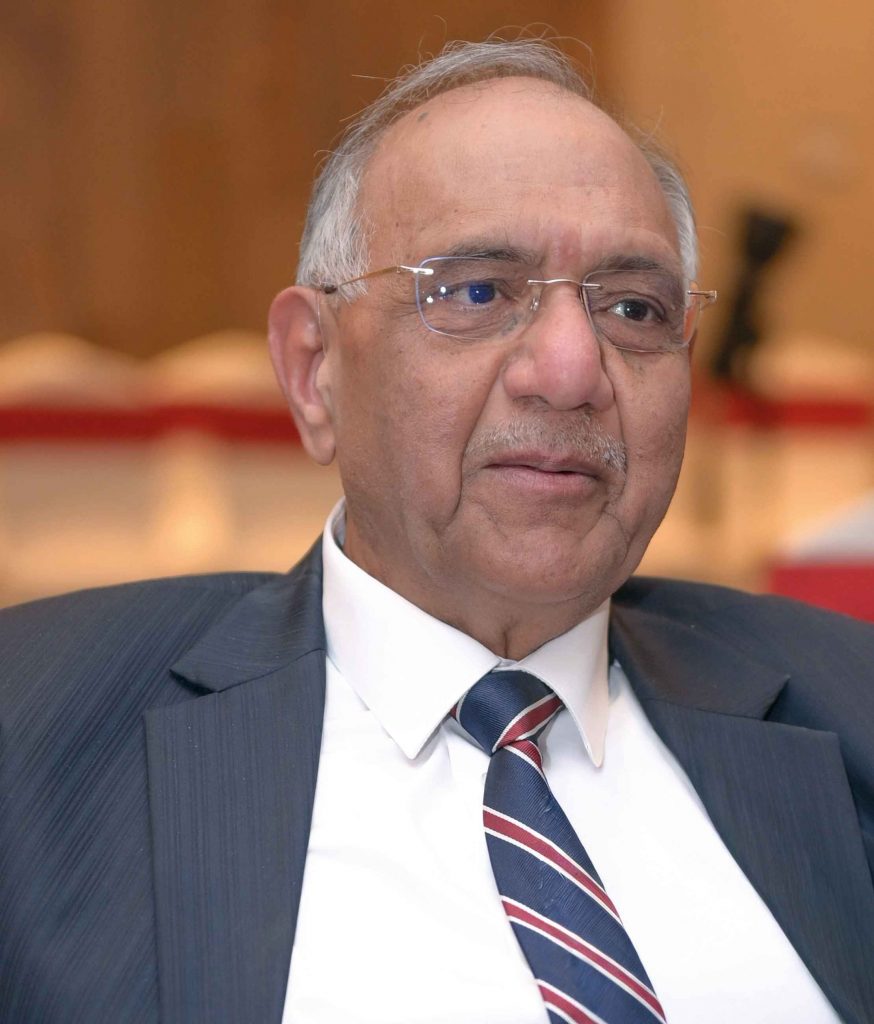
Aruneshwar Gupta, President of SWCC, began his welcome address with a warm greeting to all dignitaries. He spoke about the legal and corporate structure of sports governance, highlighting the importance of accountability, commitment, and long-term vision among those managing sports in India. He pointed out that although there are 150 recognized sports federations in the country, not a single international sports federation is registered here. While the global sports industry is valued at around 2 trillion dollars, India’s share is only about 20 billion dollars. He reflected on the history of sports law in Rajasthan and Himachal Pradesh and noted how the IPL came into existence, clarifying that the IPL is not a league but a tournament—not a grassroots initiative. He emphasized that the current progress is not merely due to government efforts but the result of restructuring the sports ecosystem. He added that development in Indian sports has not been driven by the Indian Olympic Association or federations, but by the sacrifices of families, community support, and the relentless work of grassroots coaches. He mentioned that although the Olympics generate 7.7 billion dollars in revenue, not even a single dollar reaches the athletes directly. This vision, he said, was first discussed with Rajeev more than a decade ago, and he has been part of nurturing that idea ever since. He stated that sports should be a way of life for every student, and that the Students World Cup aims to create a platform where students from all districts, states, and schools can connect and celebrate together. He emphasized that the Students World Cup must achieve what the IPL could not—build a true sporting culture and that the focus is on building a strong talent identification system starting at the grassroots by tracking every student. Concluding his remarks, he described the Students World Cup as a Made in India initiative, a generational dream, and a global platform for youth.
Dr Syamraj S, Vice President of SWCC State association executive committee (Kerala) & Director of SWCG India Ltd
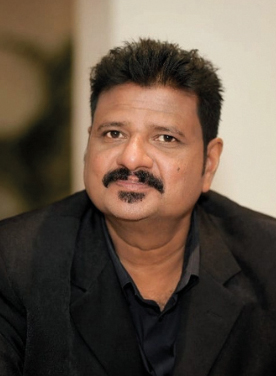
Started with a warm Greetings to all luminaries. Dr. Syamraj. S was very like-minded personality. and his efforts made the His Excellency Mohammad Ahmad Bin Fahad to join with SWCC and Students World Cup. Dr. Syam just had a Brief about his Excellency and his career. And also, mainly focused to talk about one thing that is in addition to his environmental leadership, His Excellency Dr. Mohamed Ahmed Bin Fahad served as the President of Al Wasl Football Club, a premier and uniquely prominent football club based in the United Arab Emirates. Under his presidency, the club made global headlines when he appointed his close friend and football legend Diego Maradona as head coach in 2011. This move not only elevated the club’s international profile but also brought a new era of energy, vision, and passion to UAE football game during the 2011–2012 seasons, Al Wasl Football Club remains one of the most iconic sporting institutions in the country.
Santhanakrishnan
Hon. Life President of CLA and Vice President of SWCC
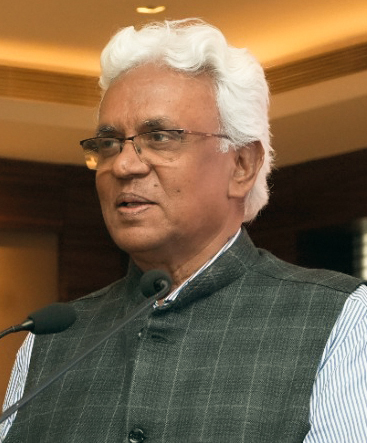
Santhanakrishnan extended heartfelt thanks to all the dignitaries, invitees, and guests whose presence made the occasion so special. He reserved special gratitude for Mr. Rajeev Kumar Cheruvara, whose vision and tireless efforts brought this launch to life. He also acknowledged Prof. Luis G. Franceschi for sharing the platform and offering valuable insights on behalf of the Commonwealth, and Mr. Saju Kadavilan for his steady and continued support.
He expressed deep appreciation for the distinguished speakers who addressed the gathering—Special Guest Dr. Abdulla Rafiu, Minister of Sports, Fitness and Recreation, Maldives; Guest of Honour His Excellency Dr. Mohammad Ahmed Bin Fahad; and Chief Guests Prof. Luis G. Franceschi and Justice Dinesh Maheshwari—each of whom enriched the event with their inspiring messages.
Finally, he highlighted the tremendous work that went on behind the scenes. With warm gratitude, he named Mr. Saju, Mr. Sajith Cheruvara, and Mr. C. Ramachandran, who worked alongside Mr. Rajeev Kumar in coordinating the event, handling the magazine, and managing all the key arrangements. Their collective efforts, he noted, played a major role in the success of the day.
Dr Ashok G Verghese, Member of NSWCF
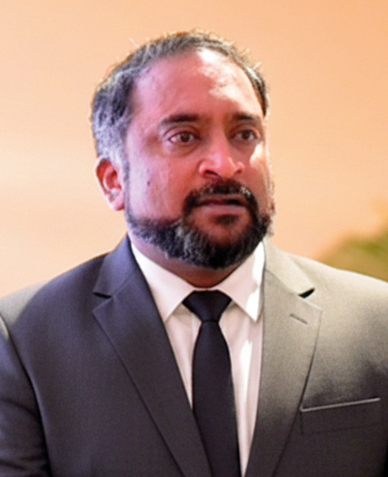
Ashok began by stating, “I think Rajeev has brought the entire judiciary here,” and warmly greeted all the luminaries and sportspersons present. He reflected on India’s long journey and expressed that today was indeed a great day. Introducing himself and his institution, founded by his father in the 1960s, he proudly shared that despite a recent aviation calamity, three of the panel members present were graduates of his institution—highlighting the power of education in nation-building. He emphasized that India is a developing country and will soon become a developed one, and that he believes in “all men’s success, no man’s failure.” Remembering his sports days, he recalled winning first place in a throwing event and receiving a soapbox as a gift—contrasting it with today’s remarkable ₹15 crore prize money, showing how far the nation has come. He expressed his joy at Rajeev’s efforts in bringing together such a large gathering, stating that his own son must participate in these tournaments. He stressed that money should not be the sole driver; effort is the key. While funding from the industry is essential to strengthen sports, in the AI-driven world of today, it is still human effort on the ground that makes the real difference.
Fr Josh Kanjooparambil, Vice President of NSWCF
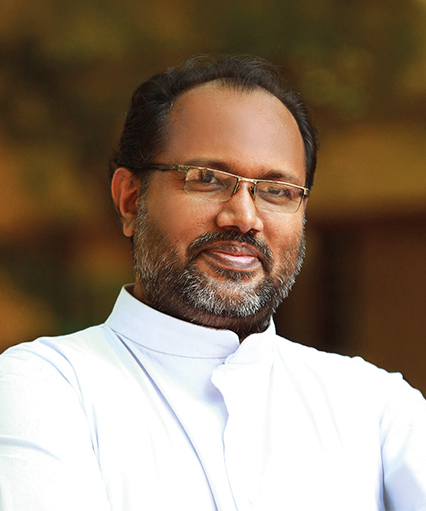
Fr. Josh introduced himself and his organisation, expressing his pride in addressing the gathering. He shared that SWCC is a visionary initiative shaping the global sports landscape. It is not just an event, but a platform that encourages perseverance, passion, and excellence, built on the values of human dignity, fraternity, and global unity. He highlighted the power of sports to unite, inspire, and lead, and spoke about the event’s scale—engaging 20,000 schools worldwide with a prize pool of ₹15 crores. He noted its positive role in guiding youth away from harmful habits and ensuring equal opportunities for all, regardless of nationality, to be recognised and celebrated. He added that true champions are built not only on the field but also through character, commitment, and courage. He concluded by congratulating all the visionaries behind SWCC.
Manoj Kumar, Director SWCG India Ltd, Vice President of NSWCF, President of SWCC State association executive committee (Delhi)
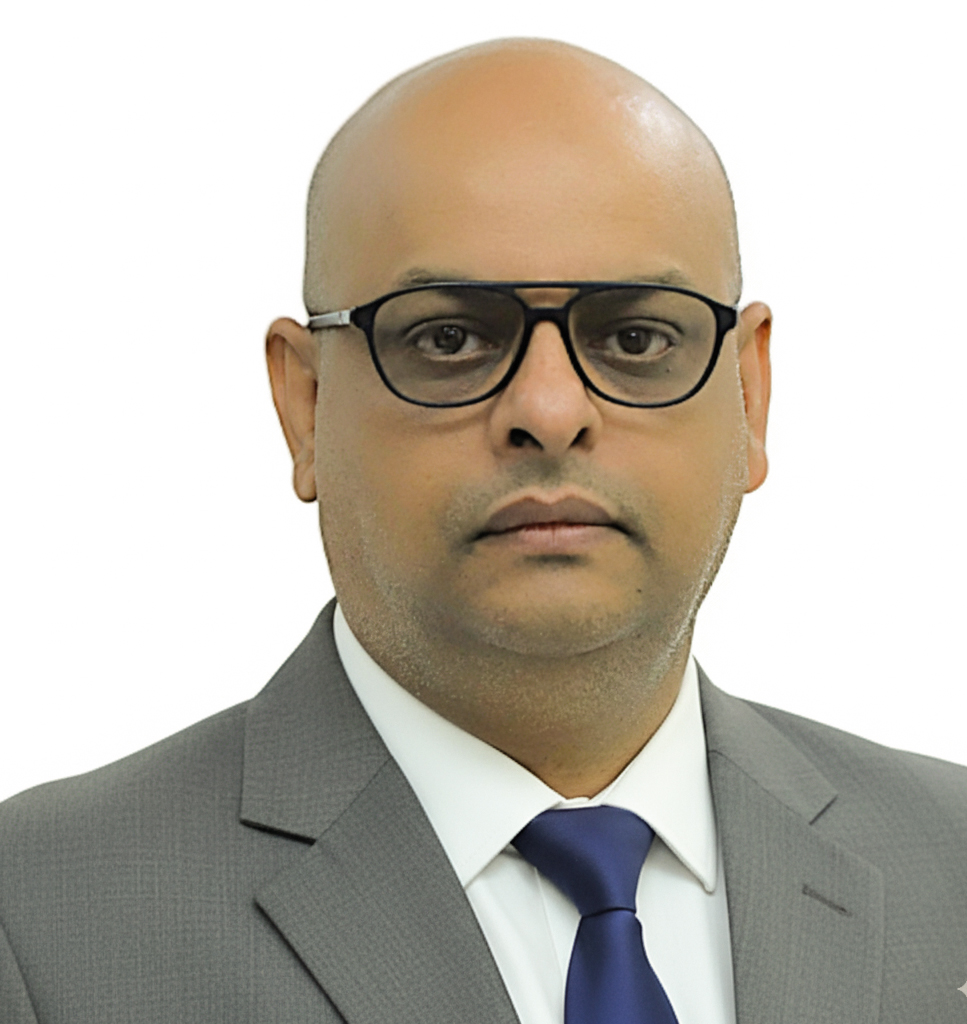
Manoj Kumar thanked everyone for joining and emphasised the importance of compliance in a country like India. He reflected on how sports is often seen as something that comes with risks, yet we have built an educated world that sometimes overlooks the importance of play. Citing the recent creation of the “Ministry of Loneliness” in the UK, he highlighted the need to address similar social challenges. He noted that although most schools have playgrounds, students often do not use them—a reality SWCC aims to change through its first campaign, Bring Back Our Playground, encouraging schools and parents to join hands.
He further explained the second campaign, The Great Indian Playground, which will serve as the nation’s first sports talent bank, nurturing India’s sporting potential. He stressed that the focus should be on ensuring that financial support reaches sportspersons directly, enabling them to grow and succeed.
Pic Courtesy: pegasus photography/ images are subject to copyright

